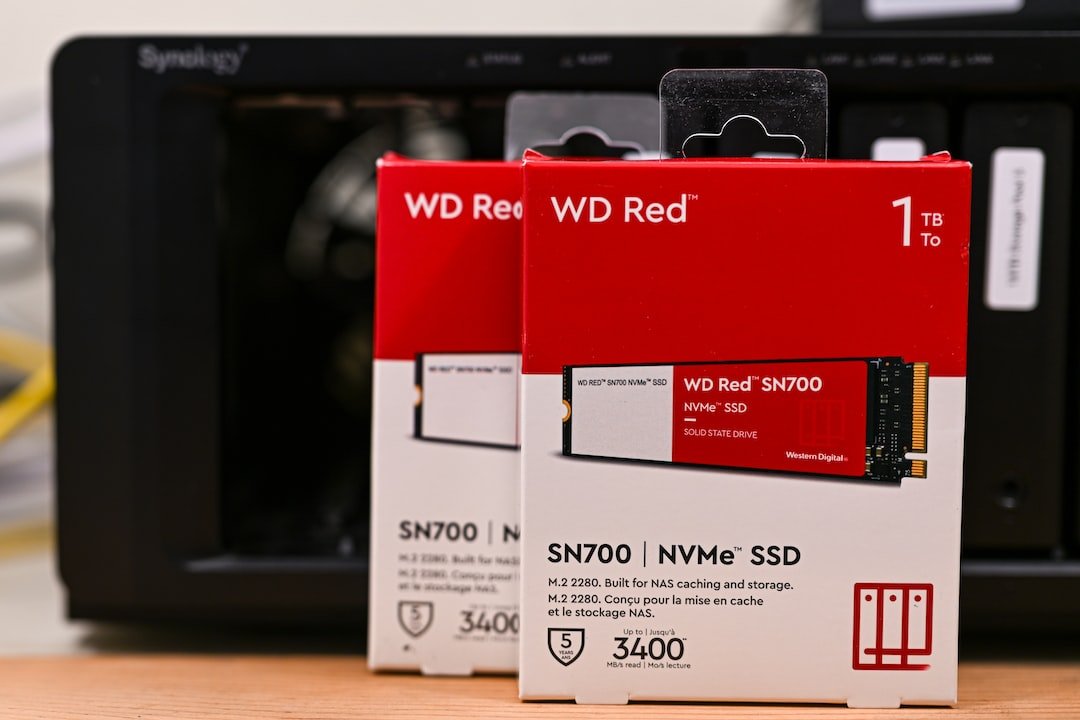Introduction
Have you ever experienced slow internet speeds or buffering while streaming your favorite show? Or maybe you were trying to join an online gaming session, but the lag made it impossible to compete? These frustrating situations can often be traced back to network performance issues. One important tool for addressing these issues is the Router Quality of Service (QoS) logs.
In this article, we will dive deep into the world of QoS logs and explore how they can be used to optimize network performance. We will explain what QoS logs are, why they are important, and how they can help improve your internet experience. So, buckle up as we embark on this journey to demystify QoS logs and empower you to take control of your network!
What are Router Quality of Service (QoS) Logs?
Before we delve into the details, let’s start with the basics. Quality of Service (QoS) is a network management feature that enhances the performance of your internet connection by prioritizing certain types of data traffic. QoS ensures that critical data, such as video streaming or gaming, receives sufficient bandwidth and is not affected by other less important traffic.
QoS logs, on the other hand, are detailed records generated by your router that provide valuable insights into how your network is performing. These logs contain information about network traffic, bandwidth usage, latency, packet loss, and other crucial metrics. Analyzing QoS logs allows you to identify bottlenecks, troubleshoot issues, and make informed decisions to optimize your network performance.
Why are Router Quality of Service (QoS) Logs Important?
Now that we understand what QoS logs are, let’s explore why they are so important. QoS logs serve as a window into your network’s health and performance. By analyzing these logs, you can:
Identify Bandwidth Hogs: QoS logs reveal which devices or applications are consuming the most bandwidth on your network. This information helps you prioritize critical traffic while limiting the impact of non-essential activities.
Pinpoint Network Congestion: Congestion can significantly degrade network performance. QoS logs provide insights into congestion points, allowing you to take corrective measures like adjusting QoS settings or upgrading your network infrastructure.
Optimize Voice and Video Calls: If you frequently experience choppy audio or video during calls, QoS logs can help you identify the cause. By analyzing these logs, you can ensure that voice and video traffic receives top priority, resulting in seamless communication.
Troubleshoot Performance Issues: Slow internet speed? High latency? QoS logs can help you identify the root cause of these problems. Whether it’s a misconfigured router, outdated firmware, or interference from neighboring networks, analyzing QoS logs can guide you towards solutions.
Monitor Internet Service Providers (ISPs): QoS logs can shed light on the performance of your internet service provider. By comparing the data in your logs with the promised bandwidth, you can hold your ISP accountable for any discrepancies and demand the service you deserve.
How to Access and Analyze Router Quality of Service (QoS) Logs?
Accessing and analyzing QoS logs may vary depending on the router model and firmware you are using. However, the following steps provide a general guideline to help you get started:
Access the Router Interface: Open your web browser and enter the router’s IP address. Typically, this address is mentioned on the router or provided by your network administrator. Once entered, you will be prompted to enter your username and password to access the router’s interface.
Locate the QoS Logs: Once you have accessed the router’s interface, navigate to the QoS settings. Look for a tab or section labeled “Logs” or “Status.” Within this section, you should find the QoS logs or a related option.
Analyze the Logs: Once you have located the QoS logs, it’s time to analyze them. The logs might be displayed in a table format, listing various metrics such as source and destination IP addresses, ports, timestamps, and QoS classifications. Pay attention to any patterns or anomalies that might indicate network performance issues.
- Use Log Analysis Tools: To simplify the process, consider using log analysis tools or software. These tools can help you aggregate and visualize the data, making it easier to identify trends or anomalies. Some routers may even have built-in analytics capabilities to simplify log analysis.
Remember that the exact steps may vary, so refer to your router’s user manual or manufacturer’s website for specific instructions.
Conclusion
In conclusion, understanding router Quality of Service (QoS) logs is crucial for optimizing network performance. QoS logs provide valuable insights into network traffic, bandwidth usage, latency, and other metrics that can help identify and troubleshoot performance issues. By analyzing these logs, you can prioritize critical traffic, pinpoint congestion points, and ensure a seamless internet experience for activities such as streaming, gaming, and video calls.
So, the next time you face network performance issues, don’t despair! Dive into your router’s QoS logs, and unravel the mysteries of your network. Armed with this knowledge, you can take control of your network and optimize it for the best possible performance.
FAQ
To help you further understand router Quality of Service (QoS) logs, here are some commonly asked questions:
| Question | Answer |
|---|---|
| How do QoS logs help with home network setup? | QoS logs can provide insights into bandwidth utilization and traffic patterns, helping you optimize your home network. |
| What are some common router troubleshooting issues? | Router troubleshooting encompasses a range of issues such as slow internet speed, Wi-Fi connectivity problems, and more. |
| How do I secure my wireless router using QoS configurations? | By prioritizing certain types of traffic, QoS configurations can help improve security by reducing network congestion. |
| Why should I consider using an open-source router firmware? | Open-source router firmware allows for greater customization and control over your network’s QoS settings and performance. |
| Can I integrate QoS logs with smart home devices and automation? | Yes, by analyzing QoS logs, you can ensure that smart home devices receive sufficient bandwidth for optimal performance. |
| How can I optimize my network for online gaming? | QoS logs can help prioritize gaming traffic, minimize latency, and eliminate lag for a smoother online gaming experience. |
These answers should provide a clearer understanding of QoS logs and their relevance in optimizing network performance.
Further Reading
For more information on routers, network optimization, and related topics, check out the following resources:
| Title | Description |
|---|---|
| Home Network Setup | A comprehensive guide on setting up and optimizing a home network. |
| Troubleshooting Router Issues | Learn how to troubleshoot common router issues for better performance. |
| The Importance of Wireless Router Security | Explore the significance of securing your wireless router. |
| The Ultimate Gaming Router Buying Guide | Your go-to resource for selecting the best router for gaming. |
| Exploring Mesh Wi-Fi Systems | Discover the benefits of using mesh Wi-Fi systems for expansive coverage. |
| 5G Routers for High-Speed Internet Connectivity | Learn about the latest 5G routers and their benefits. |
| Parental Control Routers – Keeping Your Family Safe Online | Find out how parental control routers can enhance online safety for children. |
| Open Source Router Firmware – A Guide to Enhanced Network Customization | Explore the benefits of using open-source router firmware for network customization. |
| VPN Router Security – Protecting Your Online Privacy | Discover how VPN router security can safeguard your online privacy. |
| Smart Home Integration with Routers | Learn how routers can integrate with smart home devices for a seamless experience. |
| Choosing the Right Router for Fiber Internet | A guide to selecting the most suitable router for fiber internet connections. |
These resources provide valuable insights and cover a wide range of topics related to router QoS, network optimization, and more. Enjoy expanding your knowledge and optimizing your network performance!




